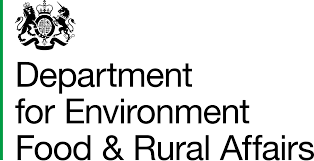PRESS RELEASE : Chief of the Defence Chatham House Security and Defence Conference 2024 keynote speech [February 2024]
The press release issued by the Ministry of Defence on 27 February 2024.
Chief of the Defence Staff Admiral Sir Tony Radakin gave a keynote speech at Chatham House Security and Defence Conference on 27 February 2024.
In my annual lecture last December, I spoke of an extraordinarily dangerous security outlook, and the opening weeks of 2024 have sadly served to reinforce that view.
This is also a year of big elections: in the US, the UK, the EU and elsewhere. And it’s very welcome that matters of defence and security are subject to public scrutiny and debate.
There is certainly a strategic shift underway. As highlighted in both the Integrated Reviews in 2021 and 2023, a traditional era of state-on-state competition and geopolitical volatility has resurfaced.
That has already warranted careful re-consideration of many of the assumptions of the past thirty years. And we have been honest in acknowledging that whilst the themes and direction are as expected, the pace and intensity is greater than forecast. We have a war in Europe that shows no signs of abating in the short term. And we have a war in the Middle East with attendant risks to implode across the region and impact on the globe.
But I worry that the public debate that has played out over recent weeks risks becoming confused and some remarks are alarmist.
The starting point for any discussion must be an intellectually honest assessment of the threats our country faces and our options to respond.
This needs to be done in a way that is measured and responsible.
This speech is my attempt to inject a sense of perspective back into this debate – both on the nature of the threats we face, and the fundamentals of Britain’s strength and security in the world.
I want to do that by offering four viewpoints as Head of the Armed Forces.
First, to reassure those who may have been alarmed by some of the recent commentary – Britain is secure. And to remind people of the extraordinary security we have through both our being in NATO and our being a nuclear power.
Secondly, some reflections and observations about Russia. How it has struggled in Ukraine. How we have been surprised at its military weakness. The predicament that it now has and how that has worsened by a strengthened NATO.
Third, what the UK is doing to buttress against these longer-term threats and how we are focusing on a strategy that emphasises nuclear, maritime and air, and a British Army that is rooted in NATO. And all this is underscored with extraordinary men and women who serve in uniform, supported by phenomenal intelligence agencies, and great civil servants.
Fourth, is just to be plain about the responsibility of the Chiefs and to reflect on how government works. My obligation as CDS, and the obligation of all the Chiefs, is to focus on delivering the most from the Armed Forces today. We can always do better and we advise ministers on what more might be needed for the future. But it is for politicians to decide how much resource is allocated and where and how this is balanced with wider demands of government. Those are sensitive conversations. They are best done in private.
First, let me scotch some of the more sensationalist headlines of late.
We are not on the cusp of war with Russia.
We are not about to be invaded.
No one in the Ministry of Defence is talking about conscription in any traditional sense of the term.
Britain is safe.
We are safe because we are part of NATO, the world’s largest and strongest alliance and also because we are a responsible nuclear power.
That doesn’t mean that we couldn’t face attacks. We already do every day in the cyber domain. We could have random attacks in space, on underwater cables, and attempted violations of our air and maritime sovereignty. The most likely protagonist is Russia. We have been clear about that.
But the dilemma for Russia is huge.
The inescapable fact is that any Russian assault or incursion against NATO would prompt an overwhelming response.
The thousands of Allied troops currently stationed in Poland and the Baltic states could draw on the 3.5 million uniformed personnel across the Alliance for reinforcement.
NATO’s combat air forces – which outnumber Russia’s 3 to 1 – would quickly establish air superiority.
NATO’s maritime forces would bottle up the Russian Navy in the Barents and the Baltic, just as Ukraine pushed the Black Sea Fleet from Crimea. NATO has four times as many ships and three times as many submarines as Russia.
Britain would be at the heart of this response, contributing 25% of Alliance strength at sea, and 10% of land and air, plus our cyber and space capabilities, and our Special Forces.
This is an Alliance that is becoming stronger all the time. Growing from 30 to 32 nations. With a collective GDP twenty times greater than Russia. And a total defence budget three-and-a-half times more than Russia and China combined.
Plus NATO has the additional strategic depth of a population of over 1 billion. And sitting above all of this is NATO as a nuclear alliance.
The biggest reason that Putin doesn’t want a conflict with NATO is because Russia will lose. And lose quickly.
Secondly, can we take some time to pause and reflect on Russia’s so-called ‘Special Military Operation’ in Ukraine? It was supposed to take between 3 days and 3 weeks. It was supposed to subjugate Ukraine’s population. It was supposed to take about two thirds of Ukraine’s territory. It was supposed to stop Ukraine joining NATO and the EU.
Putin has failed in all of these strategic objectives. At the operational level, Russia has demonstrated its continued inability to fight in a joint way. Its Air Force has failed to gain control of the air. Its Navy has seen 25% of its vessels in the Black Sea sunk or damaged by a country without a Navy and Ukraine’s maritime trade is reaching back to pre-war levels. Russia’s Army has lost nearly 3,000 tanks, nearly 1500 artillery pieces and over 5,000 armoured fighting vehicles.
At the tactical level, Russia gained Bahkmut – an area just over 40 square kilometres – after 9 months of fighting. Avdiivka is about 29 square kilometres. That has taken 5 months and some 17 thousand Russian lives and over 30 thousand injured.
To pose a realistic threat to NATO’s Eastern flank within the next 2-5 years, Russia will need to reconstitute her tanks and armoured vehicles, rebuild her stocks of long-range missiles and artillery munitions and extract itself from a protracted and difficult war in Ukraine.
I am not saying that Russia is not dangerous. It has demonstrated that with the aggression it employs both domestically and internationally.
But at the same time it is also significantly less capable than we anticipated following its disastrous illegal invasion into Ukraine. And it faces an even stronger straitjacket with the introduction of Finland and Sweden into NATO. Both theses are true and can exist at the same time: a Russia that is more dangerous and less capable than we thought. And it is the more dangerous Russia that we and NATO are responding to.
Consequently, my third point is that recent talk of a Britain that is undefended, and an Armed Forces chronically imperilled, is way off the mark.
Look at all we have contributed over the past two-and-a-half years. Strengthening our commitment to NATO. Bolstering the Baltic states. A presence in the Arctic circle. The campaign against Daesh in Iraq and Syria. Leading and galvanising the response in Ukraine. The evacuation from Sudan. Reassuring Guyana. Protecting trade in the Red Sea. Combatting the Houthi threat. Time-and-again the British Armed Forces have stepped up to do our bit. And that’s without even considering our domestic roles.
The Middle East is a case in point. We are the second largest coalition partner in Iraq. We have a base in Bahrain, where we provide mine hunters, a support ship and a frigate. Second again to America.
We are in the Combined Air Operations Centre in Qatar overseeing air operations across the whole region. Again, second only to America.
Then we can add in an extra frigate and destroyer in the region, our operations in the Red Sea are getting seriously up threat to protect our merchant ships.
Staying in the region, we have access to an enormous land training area in Oman – twice the size of our one in Canada – where we are training alongside our Omani friends and many others in the region, usually with a battalion at a time. Plus we have access to a port in Duqm that can take all our ships.
Venture further and we have more bases in Diego Garcia and Cyprus. In Cyprus we have extraordinary facilities, as well as a further two battalions and our fast jets and support aircraft.
And at sea we have Royal Fleet Auxiliary ships ready to provide humanitarian aid. This is an extraordinary lay down that no other nation other than America can match.
And our people are doing what they are trained to do. With equipment like the Type 45 destroyer that was designed for precisely this purpose. Defending Britain’s interests. Keeping the trade flowing and the lights on.
Our Typhoon force is in action once again. This follows ten years of operations against Daesh in Iraq and Syria which has seen more than 10,000 sorties, 4,000 precision weapon releases, and 1,400 enemy combatants killed or wounded.
All of this is backed by a Defence Equipment and Support organisation that is overseeing 2,600 contracts, and over 550 programmes. Those deliver 98% of key user requirements, and it achieves 90% of strategic milestones and, contrary to perception, delivers well to budget.
Yes, we have issues and problems that we need to get after. We need deeper stockpiles of ammunition. We currently spend over a billion pounds a year on munitions procurement and repair, and plans are in train to increase this substantially.
There are always challenges in running a large organisation that conducts worldwide operations and is as sophisticated as our modern military. Things will go wrong and they will also go right. We are always looking to do better. These kinds of challenges apply to militaries everywhere. But we have the finest people and some of the best equipment.
When we were unable to sail one aircraft carrier, our people worked around the clock to deploy the second in a matter of days. That’s the real story. And it was a phenomenal achievement.
We know we need to look after our people better. That is why we gained a nearly 10% pay rise for our most junior people last year. That is why we are modernising our accommodation offer to provide more choice, again particularly to our more junior people.
The same applies with recruitment and diversity. We did well during Covid and people clung to the security we offered at a stressful time. Some of those are now leaving and at higher numbers than normal, but that has already stabilised and applications for the Army and Navy are up 8 -fold and 6-fold.
We need to appeal to young people from every background or either gender or whatever their sexual orientation because we need to attract the best people. That’s like any large organisation: I know of no big employer that seeks to not be attractive to all these people and then choose the best. That’s all we are trying to do, as well as applying a simple code that every individual should be able to bring the best of themselves to work in their ambition to serve their country.
And if we step back, what we see is an Armed Forces that is undergoing an extraordinary transformation throughout this decade. This follows the toughness of the previous decade – where we were understandably focused on Iraq and Afghanistan, and we slowed investment in nuclear and took temporary capability cuts in carriers and maritime patrol aircraft.
We are now adjusting to an Army that will be at the heart of NATO as one of SACEUR’s two Strategic Reserves, and is the beneficiary of £41 billion of new investment. More than the £38 billion in capital we will spend on the non-nuclear parts of the Navy or the £36 billion we will spend on Air.
We have a Royal Air Force transforming from a fourth generation to fifth generation aircraft, with a sixth-generation fighter now in development.
A Royal Navy that is a carrier Navy once again. At the heart of an extraordinary nuclear enterprise. And with an astonishing 22 major ships and submarines under construction or on order.
And we have Strategic Command leading and supporting defence as we move from three domains to five, and from forces that are joint to ones that are properly integrated.
And all this is alongside our biggest capital investment: nuclear. The continuing relevance of nuclear is one of the biggest lessons of Russia’s war against Ukraine.
I’ve spoken previously about the decaying global architecture of nuclear security, the lapsing and disintegrating arms control treaties, and the total absence of equivalent structures in the Indo-Pacific.
For established and responsible nuclear powers like the United Kingdom, this is driving us to modernise our nuclear enterprise as a priority. New warheads. New deterrent submarines. New infrastructure and thousands of new jobs.
You will have seen the recent coverage of the Trident missile test firing. Unfortunately, I cannot go into the details. But I can assure you this was an anomaly of the testing regime. HMS VANGUARD passed her examination to a very high standard. And our confidence in the missile system is borne from the nearly 200 tests as part of a shared pool of UK and US missiles.
Looking further afield, there are also non-military threats to our domestic stability and to international cohesion, particularly as Russia seeks to compete for influence with middle ground countries.
In response, we must recognise our “defence” constitutes more than just military capability.
Earlier this month I was in Georgetown, Guyana, for a meeting of the Caribbean Chiefs of Defence. The President of Guyana was trained at Sandhurst. The Chief of Defence attended the UK’s Advanced Command and Staff Course. The Jamaican Chief – the only female Armed Forces head in the world – was trained at Dartmouth. Our country is fortunate to draw on these kinds of relationships across the world.
Relationships that allow us to leverage our network of partners and allies in defence of the rules-based system.
And they afford us the strategic patience required to execute and maintain a long-term approach to our security – exemplified by AUKUS and GCAP, which binds Britain and its allies in a partnership for decades to come.
None of this means that we do not review and debate our approach.
There are lessons we must learn from Ukraine and the Red Sea in terms of future investment choices. Integrated Air and Missile Defence for the UK. Long range missiles for the Army. Land attack for our surface fleet. Strengthening nuclear deterrence. Hundreds of thousands more drones across all three Services. I’ve spoken about all these things before.
And there are also big conversations that need to happen: on the size and shape of the Armed Forces, on readiness and resilience, on faster and better procurement, on our ability to appeal to young people.
This leads to my fourth and final point: I can assure you these conversations are going on privately within Government all the time.
These discussions happen in private because they need to be grounded in a candid and sensitive examination of the threats we face, and because they are ultimately political decisions.
And they sit above our day-to-day focus as Chiefs.
Our most immediate responsibility is to ensure the Armed Forces deliver the maximum return for the £50 billion we currently have each year.
So before we start talking about a bigger Army, can we first concentrate on meeting our current recruitment targets?
Before we talk about more ships for the Navy or aircraft for the RAF, can we ensure we are getting the most from the ones we have?
And most importantly: can we check that we are still looking after our people properly? Do we still offer good pay, excellent benefits and decent food and accommodation?
The vast majority of our people, including service women, recommend the Armed Forces as a career to friends and family. That must remain one of the litmus tests of whether we’re getting this right.
In all this, our aim should not be to recreate the Armed Forces of the Cold War. We should be looking to the future. Modern, lethal, agile Armed Forces that harness and drive our nation’s strengths and support the country in every way possible.
These are dangerous and uncertain times. But Britain has what it needs to succeed. A G7 economy. An extensive science and technological base. Our island geography. Our membership of the world’s strongest military alliance. Our status as a nuclear power, and our seat on the UN Security Council. And most of all the commitment of our servicemen and women and our civil servants.
Our task is to meld and align these strengths in a way that is faster and bolder than our competitors. That is how we will continue to stay safe. That is how we will win in the future.



